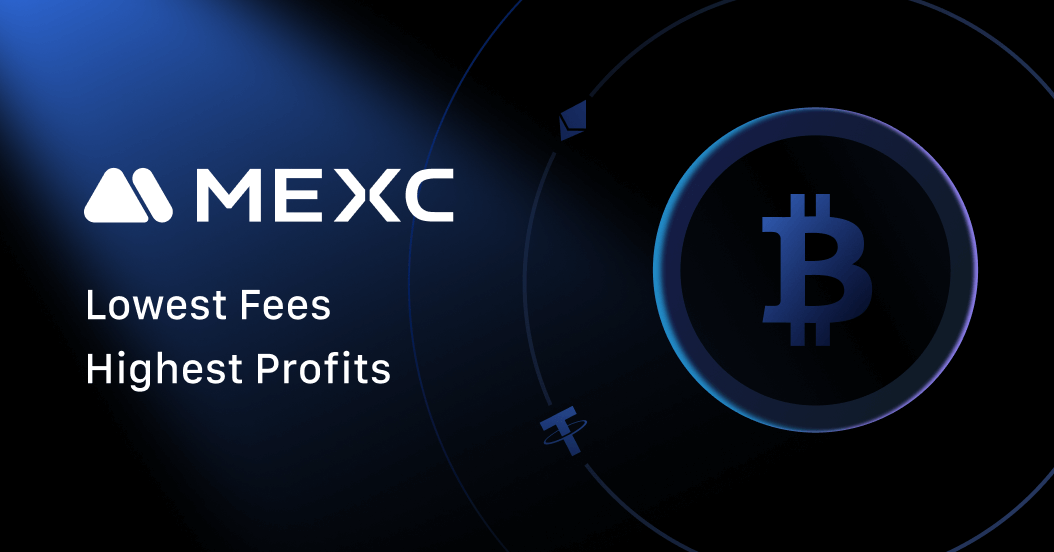
6 minute read
Is MEXC Regulated in the EU? What You Need to Know
from MEXC
by Exness_India
If you are wondering “Is MEXC regulated in the EU?”, you’re not alone. Regulation is a critical factor for anyone trading cryptocurrencies, especially in the European Union where rules around digital assets are becoming increasingly strict. This article cuts straight to the chase: we’ll explain MEXC’s regulatory status in the EU, what it means for traders, and how you can assess the safety and legality of using MEXC in Europe.
✅ Trade with MEXC now: Open An Account 👈 (1,000$ Signup Bonus)

What Is MEXC?
MEXC (formerly MXC Exchange) is a global cryptocurrency exchange offering spot, futures, margin trading, and a wide range of digital assets. Since its launch in 2018, MEXC has quickly grown in popularity due to its vast coin offerings and user-friendly platform. However, popularity does not necessarily mean regulatory compliance, especially within the EU’s complex legal environment.
Is MEXC Regulated in the EU?
The simple answer is No, MEXC is not currently regulated by any financial authority within the European Union. Unlike major exchanges that have obtained licenses to operate under EU regulations, MEXC operates without formal authorization in the region.
Why Is This Important?
Regulation provides a layer of protection for traders. Exchanges regulated in the EU must comply with rules set by bodies such as the European Securities and Markets Authority (ESMA), as well as local regulators like Germany’s BaFin, the UK’s FCA (for now), or the French AMF.
These regulations ensure the exchange follows strict guidelines for anti-money laundering (AML), know your customer (KYC) procedures, consumer protection, and financial transparency.
Without regulation, users of MEXC in the EU face higher risks including:
· Lack of investor protection in case of insolvency or hacks.
· Potential legal issues related to using an unlicensed platform.
· Reduced recourse options if disputes arise.
· Limited transparency regarding internal security and fund management.
What Does EU Regulation Mean for Crypto Exchanges?
The European Union is in the process of establishing comprehensive regulations for crypto markets under the Markets in Crypto-Assets (MiCA) framework. MiCA aims to create clear standards for crypto asset providers, ensuring consumer protection and market integrity across all member states.
Currently, exchanges licensed under MiCA or other EU regulatory frameworks:
· Register with local authorities.
· Comply with AML and KYC rules.
· Maintain capital requirements.
· Follow transparency and reporting standards.
MEXC’s absence from these registries means it does not meet these regulatory standards in the EU.
Can You Use MEXC Safely in the EU?
Even though MEXC is unregulated in the EU, it is still accessible to European users. The platform does not block European IP addresses and allows registration from many EU countries. But accessibility does not imply endorsement or safety.
If you decide to use MEXC from the EU, consider these key points:
· KYC Compliance: MEXC requires basic KYC verification, but the depth and robustness may not meet EU regulatory expectations.
· Legal Risk: Using unregulated exchanges can expose you to potential legal risks, especially if your country introduces stricter crypto laws.
· Security: MEXC has not reported major security breaches publicly, but unregulated exchanges generally carry more risk than regulated counterparts.
· Customer Support and Dispute Resolution: Without regulatory oversight, you might find it difficult to resolve conflicts or recover lost funds.
✅ Trade with MEXC now: Open An Account 👈

How to Verify if an Exchange Is Regulated in the EU
To check if any exchange, including MEXC, is regulated within the EU, you can:
· Visit official regulatory websites such as BaFin (Germany), FCA (UK), or AMF (France).
· Look for licenses or registrations under the MiCA regime once it is fully implemented.
· Check if the exchange publishes compliance reports or regulatory certificates.
· Read up-to-date reviews and regulatory news from trusted crypto information sources.
As of now, MEXC does not appear on any official EU regulatory registers.
Alternatives to MEXC With EU Regulation
If you prioritize security and legal protection, consider using exchanges that are regulated in the EU. Some reputable regulated exchanges available to European users include:
· Binance EU (operates with specific EU licenses)
· Kraken (registered with FinCEN and compliant with EU laws)
· Bitstamp (fully regulated and licensed in Luxembourg)
· Coinbase Europe (licensed and compliant in multiple EU countries)
These exchanges provide greater peace of mind due to regulatory oversight, transparent operations, and investor protection mechanisms.
Why Some Traders Still Use MEXC Despite Lack of EU Regulation
MEXC’s rapid growth and wide range of altcoins attract users seeking access to lesser-known tokens and innovative trading products. Traders who prioritize variety and lower fees sometimes accept the regulatory risks.
Additionally, some users prefer exchanges that allow more anonymity or lighter KYC requirements, which MEXC currently offers compared to fully regulated platforms. However, this convenience comes with the trade-off of reduced consumer protections.
What to Expect Next: EU Regulation and MEXC
The EU’s MiCA regulation is expected to come into force in stages starting in 2024. This will create a more level playing field by requiring all exchanges operating in the EU to obtain licenses or cease operations.
MEXC will face pressure to either:
· Obtain necessary licenses within the EU, complying with MiCA.
· Restrict EU users from accessing its services.
Given the growing global push for crypto regulation, MEXC’s future in Europe depends on its willingness to meet regulatory demands.
Final Verdict: Should EU Users Trust MEXC?
If your priority is regulatory compliance and legal safety, MEXC is not currently a recommended choice for users based in the EU. The lack of formal licensing means you have limited consumer protections and face increased risks.
However, if you understand these risks and want access to a wider range of cryptocurrencies, MEXC remains accessible but should be used cautiously. Always practice strong security measures such as using hardware wallets for long-term holdings and never keeping large amounts of funds on any exchange.
Summary
· MEXC is not regulated in the EU.
· The exchange operates without an EU financial license or registration.
· Using unregulated exchanges carries legal and financial risks.
· The EU’s MiCA framework will soon enforce stricter licensing for crypto exchanges.
· EU users should prefer regulated platforms for enhanced safety.
· MEXC’s broad token offerings attract some users despite regulatory gaps.
· Expect MEXC to either comply or restrict EU operations as regulations tighten.
If you want safe, compliant crypto trading in the EU, seek out licensed exchanges with full regulatory oversight. For those willing to trade at higher risk, MEXC is an option — but not one backed by EU regulatory protection.
✅ Trade with MEXC now: Open An Account 👈
Read more:








